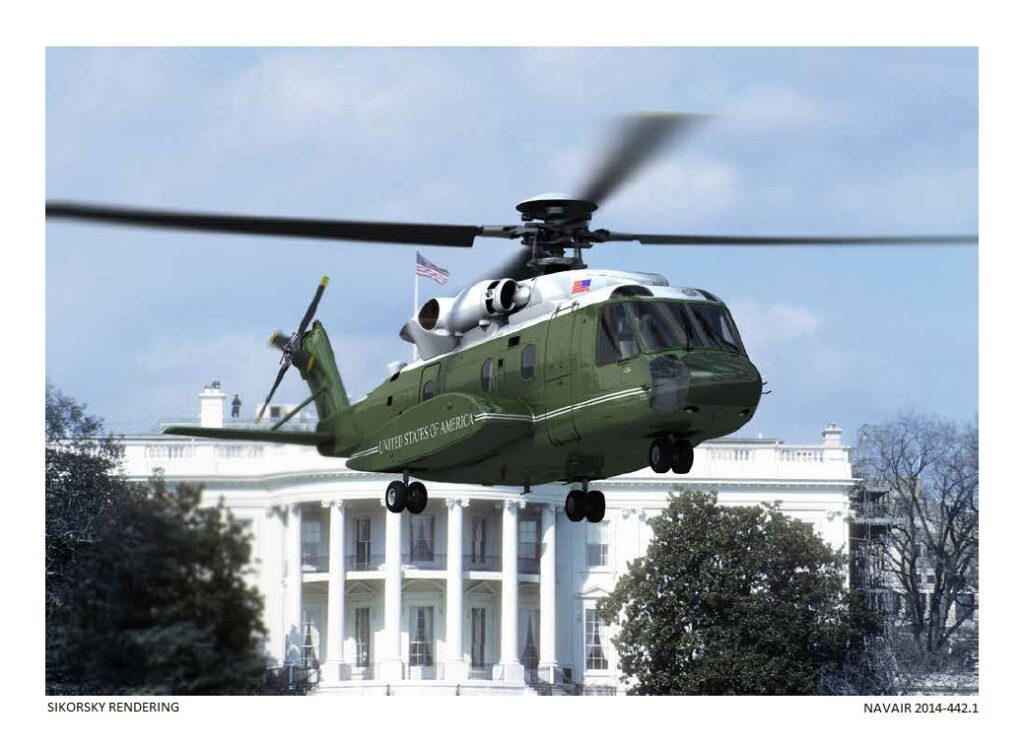Kendall’s Merger Crusade: Bad Idea?
Posted on

A Sikorsky drawing of their H-92 helicopter in its future role as “Marine One.”
WASHINGTON: The Pentagon is “weeks” away from taking a tougher line on mergers between defense contractors — but two top defense industry analysts told Breaking Defense that was a bad idea.
“Their only possible response to M&A [Mergers & Acquisitions] is S&P[:] Signaling & Posturing,” said the Teal Group’s Richard Aboulafia. “As with so many other DoD M&A moves, the objective is to make the government appear to have more regulatory power in the industry than it actually has.”
The Under Secretary of Defense for acquisition, Frank Kendall, told Reuters Tuesday that Defense, Justice, and other agencies were working on a legislative proposal that would expand the government’s block to block mergers for reasons of national security. The trigger for the move was Kendall’s discomfort with aerospace titan Lockheed Martin’s acquisition of helicopter maker Sikorsky — even though Justice found no legal grounds to stop the deal under current anti-trust law.
“It is not clear at all why Secretary Kendall was uncomfortable with Lockheed Martin’s acquisition of Sikorsky,” said Loren Thompson of the Lexington Institute, who’s consulted for Lockheed and many other defense contractors. “It’s hard to see how national security would be harmed by a proposed combination if it does not raise anti-trust implications [under current law]. The department’s main goal is to preserve competition, which spurs innovation and efficiency. That is also the main focus of antitrust policy.”
Since Lockheed didn’t build helicopters, and Sikorsky built nothing else, their merger didn’t reduce the number of companies competing for any current or potential contract. “The transaction did not lead to greater concentration in the rotorcraft sector, and it avoided delivering a storied business into the hands of financial buyers, who would have cared solely about near-term profits,” Thompson continued. “Merging Sikorsky into Lockheed Martin was the best outcome for the government customer.”
“Kendall’s concern seems to focus mainly on the size of a combination rather than whether it impairs competition,” Thompson told me, “[but] mere bigness is no threat to competition, and in fact may be crucial to preserving multiple players in particular market segments.”
A big parent company could keep key capabilities alive — say, helicopter manufacturing — when a smaller company could not, the argument goes. If the Pentagon tries to keep firms from merging at a time when defense budgets are shrinking, manufacturers with irreplaceable skills may just go under instead.
“DoD’s sole power is to fund people,” Aboulafia said. “If it doesn’t fund companies, they merge, or are acquired. Trying to establish rules beyond this is futile.”
Subscribe to our newsletter
Promotions, new products and sales. Directly to your inbox.
